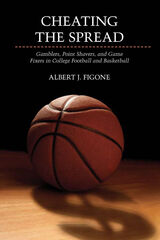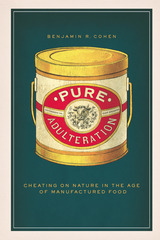2 books about Cheating

Cheating the Spread
Gamblers, Point Shavers, and Game Fixers in College Football and Basketball
Albert J. Figone
University of Illinois Press, 2012
Delving into the history of gambling and corruption in intercollegiate sports, Cheating the Spread recounts all of the major gambling scandals in college football and basketball. Digging through court records, newspapers, government documents, and university archives and conducting private interviews, Albert J. Figone finds that game rigging has been pervasive and nationwide throughout most of the sports' history. The insidious practice has spread to implicate not only bookies and unscrupulous gamblers but also college administrators, athletic organizers, coaches, fellow students, and the athletes themselves.
Naming the players, coaches, gamblers, and go-betweens involved, Figone discusses numerous college basketball and football games reported to have been fixed and describes the various methods used to gain unfair advantage, inside information, or undue profit. His survey of college football includes early years of gambling on games between established schools such as Yale, Princeton, and Harvard; Notre Dame's All-American halfback and skilled gambler George Gipp; and the 1962 allegations of insider information between Alabama coach Paul "Bear" Bryant and former Georgia coach James Wallace "Wally" Butts; and many other recent incidents. Notable events in basketball include the 1951 scandal involving City College of New York and six other schools throughout the East Coast and the Midwest; the 1961 point-shaving incident that put a permanent end to the Dixie Classic tournament; the 1978 scheme in which underworld figures recruited and bribed several Boston College players to ensure a favorable point spread; the 1994-95 Northwestern scandal in which players bet against their own team; and other recent examples of compromised gameplay and gambling.
[more]

Pure Adulteration
Cheating on Nature in the Age of Manufactured Food
Benjamin R. Cohen
University of Chicago Press, 2019
Benjamin R. Cohen uses the pure food crusades at the turn of the twentieth century to provide a captivating window onto the origins of manufactured foods in the United States.
In the latter nineteenth century, extraordinary changes in food and agriculture gave rise to new tensions in the ways people understood, obtained, trusted, and ate their food. This was the Era of Adulteration, and its concerns have carried forward to today: How could you tell the food you bought was the food you thought you bought? Could something manufactured still be pure? Is it okay to manipulate nature far enough to produce new foods but not so far that you question its safety and health? How do you know where the line is? And who decides?
In Pure Adulteration, Benjamin R. Cohen uses the pure food crusades to provide a captivating window onto the origins of manufactured foods and the perceived problems they wrought. Cohen follows farmers, manufacturers, grocers, hucksters, housewives, politicians, and scientific analysts as they struggled to demarcate and patrol the ever-contingent, always contested border between purity and adulteration, and as, at the end of the nineteenth century, the very notion of a pure food changed.
In the end, there is (and was) no natural, prehuman distinction between pure and adulterated to uncover and enforce; we have to decide. Today’s world is different from that of our nineteenth-century forebears in many ways, but the challenge of policing the difference between acceptable and unacceptable practices remains central to daily decisions about the foods we eat, how we produce them, and what choices we make when buying them.
In the latter nineteenth century, extraordinary changes in food and agriculture gave rise to new tensions in the ways people understood, obtained, trusted, and ate their food. This was the Era of Adulteration, and its concerns have carried forward to today: How could you tell the food you bought was the food you thought you bought? Could something manufactured still be pure? Is it okay to manipulate nature far enough to produce new foods but not so far that you question its safety and health? How do you know where the line is? And who decides?
In Pure Adulteration, Benjamin R. Cohen uses the pure food crusades to provide a captivating window onto the origins of manufactured foods and the perceived problems they wrought. Cohen follows farmers, manufacturers, grocers, hucksters, housewives, politicians, and scientific analysts as they struggled to demarcate and patrol the ever-contingent, always contested border between purity and adulteration, and as, at the end of the nineteenth century, the very notion of a pure food changed.
In the end, there is (and was) no natural, prehuman distinction between pure and adulterated to uncover and enforce; we have to decide. Today’s world is different from that of our nineteenth-century forebears in many ways, but the challenge of policing the difference between acceptable and unacceptable practices remains central to daily decisions about the foods we eat, how we produce them, and what choices we make when buying them.
[more]
READERS
Browse our collection.
PUBLISHERS
See BiblioVault's publisher services.
STUDENT SERVICES
Files for college accessibility offices.
UChicago Accessibility Resources
home | accessibility | search | about | contact us
BiblioVault ® 2001 - 2024
The University of Chicago Press









